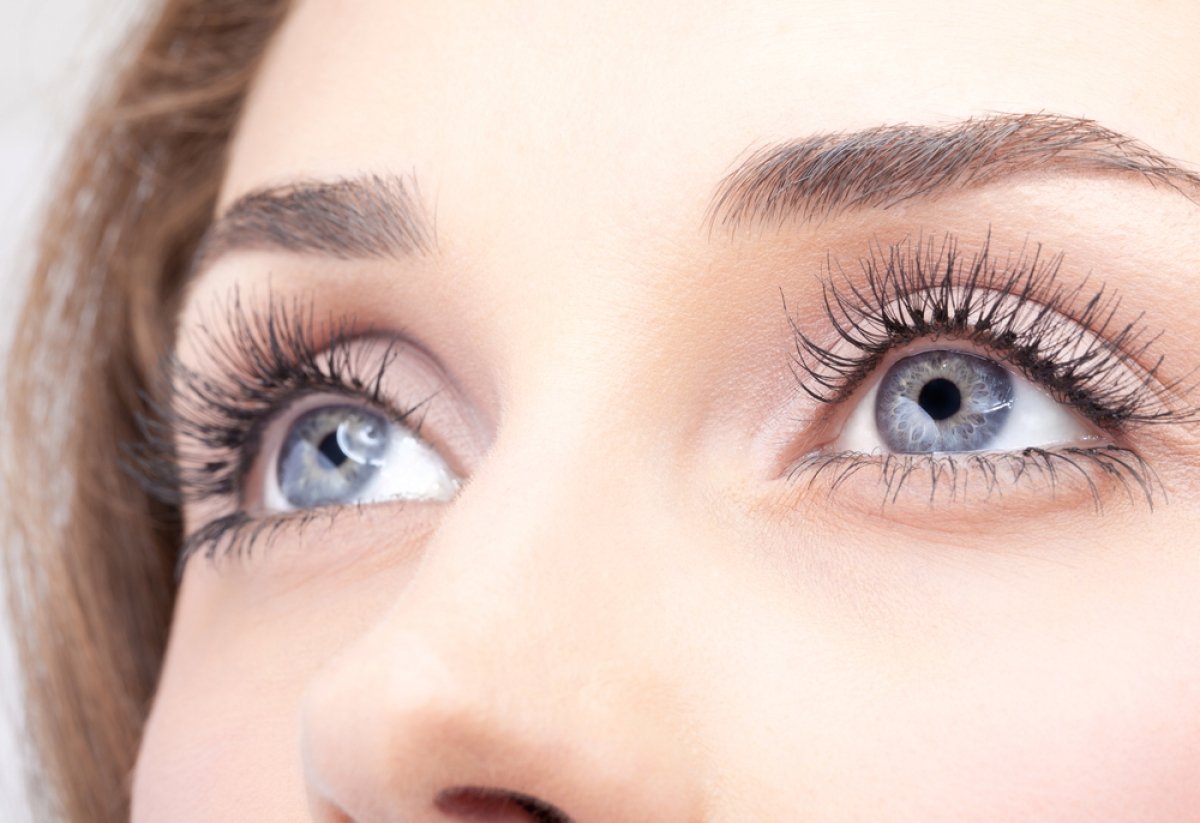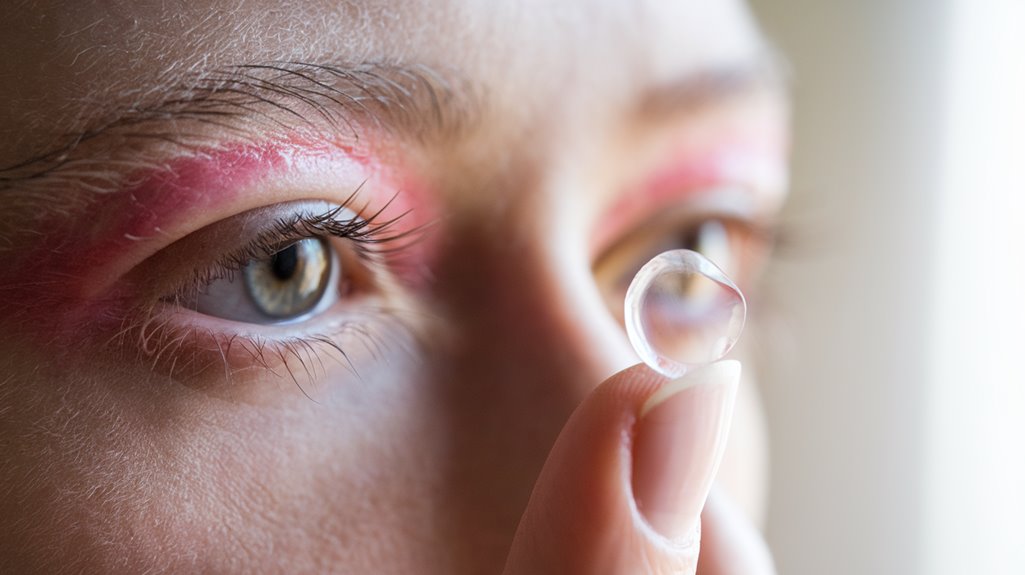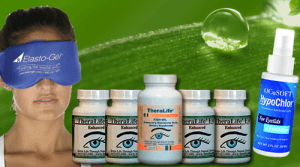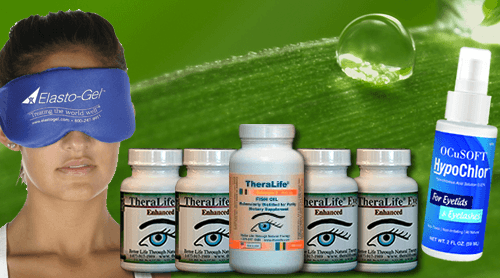Theralife.com offers comprehensive solutions to manage blepharitis and enhance the safety and comfort of contact lens wearers. Theralife’s products, such as Eye Enhanced, are designed to address the root causes of eye conditions, providing relief from symptoms like dryness, redness, and irritation. Their approach includes natural and holistic treatments that support overall eye health, making it easier for individuals with blepharitis to wear contact lenses safely.
For those dealing with blepharitis, Theralife recommends daily disposables or silicone hydrogel lenses to minimize debris and improve comfort. Maintaining strict hygiene is crucial, and Theralife emphasizes the importance of washing hands thoroughly, using gentle eyelid scrubs, and applying warm compresses. Their products are formulated to complement these routines, ensuring optimal eye care.
Should symptoms of redness or irritation arise, Theralife advises discontinuing lens use and consulting with an eye care professional for tailored guidance. Their extensive resources and expert advice offer personalized solutions for managing eye conditions effectively. To learn more about Theralife’s innovative eye care products and how they can benefit you, explore their offerings and expert insights on their website.
Best Blepharitis Treatment From TheraLife
Key Takeaways
- Select moisture-retaining contact lenses to reduce dryness and irritation associated with blepharitis.
- Opt for daily disposable lenses to minimize debris and allergen buildup.
- Maintain a consistent eye hygiene routine, including daily eyelid scrubs and warm compresses.
- Use recommended cleaning solutions and replace storage cases every three months for optimal lens hygiene.
- Discontinue lens use and consult an eye care professional if blepharitis symptoms worsen.
Understanding Blepharitis and Its Impact on Contact Lens Wearers
Blepharitis, a common eyelid inflammation, can considerably affect those who wear contact lenses. You might experience irritation, redness, and discomfort, making it challenging to wear lenses comfortably.
Understanding blepharitis causes is essential for managing its impact. It often results from bacterial infections, gland dysfunction, or skin conditions like seborrheic dermatitis. These causes can exacerbate symptoms when compounded by contact lens use.
Various contact lens types can influence blepharitis symptoms differently. Soft lenses, while popular, may increase the risk of debris accumulation, aggravating eyelid inflammation. Rigid gas-permeable lenses might reduce this risk due to their durability and lower propensity for trapping particles. By understanding these interactions, you can make informed decisions about contact lens types that best accommodate your condition. It is crucial to maintain proper eyelid hygiene to prevent bacterial growth and manage it effectively.
Selecting the Ideal Contact Lenses for Blepharitis
When managing blepharitis, choosing the right contact lenses can profoundly influence your comfort and eye health.
You should consider lens types that prioritize moisture retention, as they help alleviate dryness and irritation. Daily disposable lenses are an excellent choice, reducing the buildup of debris and allergens.
Silicone hydrogel lenses offer high oxygen permeability, promoting eye health and comfort. Soft lenses with enhanced moisture retention prevent your eyes from drying out, which is vital for managing blepharitis symptoms. It’s essential to ensure proper eye hygiene to prevent potential infections that can exacerbate it.
Pay attention to:
- Daily disposable lenses: Minimize debris and allergen accumulation.
- Silicone hydrogel lenses: Guarantee high oxygen flow.
- Soft lenses with moisture retention: Prevent dryness.
- Consult your eye care professional: Tailor lens choice to your needs.
- Regularly replace lenses: Maintain peak eye health.
Perfecting Your Eye Hygiene Routine
To effectively manage blepharitis, it’s vital to perfect your eye hygiene routine. Start by washing your hands thoroughly before touching your eyes or contact lenses.
Incorporate eye hygiene into your daily routine by using a gentle, non-irritating eyelid scrub to clean your eyelids. This helps remove debris and oil that can exacerbate it.
Warm compresses can be applied to your eyelids daily to soothe irritation and loosen any crusty buildup. Consistency is important; make these steps a part of your daily routine to maintain ideal eye health.
Avoid rubbing your eyes, which can worsen symptoms. By diligently following this eye hygiene routine, you can effectively manage it and guarantee your eyes remain healthy while wearing contact lenses.
To further enhance eye health, consider integrating omega-3 fatty acids into your routine, as they offer anti-inflammatory benefits and may improve symptoms.
Proper Cleaning and Storage of Contact Lenses
Properly cleaning and storing your contact lenses is essential to maintaining eye health and preventing complications. Use the right cleaning solutions to remove debris and bacteria from your lenses. Always wash your hands thoroughly before handling lenses. Clean your storage cases regularly to prevent microbial contamination. Replace your cases every three months to maintain ideal hygiene.
It’s important to keep your eyelids and eyelashes clean as well, as this can prevent the development of conditions like blepharitis that could affect contact lens comfort.
Follow these steps to guarantee safe contact lens use:
- Use only recommended cleaning solutions: Avoid homemade or expired solutions.
- Rinse lenses thoroughly: Eliminate residues that could irritate your eyes.
- Air-dry storage cases: Prevent microbial growth by keeping them dry.
- Avoid tap water: Use sterile solutions to rinse and store lenses.
- Replace lenses as directed: Stick to the replacement schedule to reduce infection risk.
Recognizing and Addressing Symptoms Promptly
Maintaining eye health with contact lenses involves not just cleaning and storage but also recognizing and addressing symptoms of complications like blepharitis promptly.
Symptom identification is vital for preventing more severe issues. Look for signs such as redness, itchiness, burning sensation, or crusty eyelids. These symptoms can indicate inflammation, requiring early intervention. Addressing these promptly minimizes discomfort and prevents further complications.
When you notice these symptoms, stop wearing your contact lenses immediately. Clean your eyelids with a warm, damp cloth to remove debris. Use lubricating eye drops to alleviate dryness.
If symptoms persist, consider switching to glasses temporarily until your eyes recover. By acting quickly, you guarantee your eyes remain healthy, and your contact lens experience stays comfortable. Additionally, consider using HypoChlor Cleanser to prevent bacteria and mite reattachment, which can exacerbate blepharitis symptoms.
Consulting With Your Eye Care Professional for Personalized Advice
When dealing with blepharitis and contact lens complications, consulting your eye care professional is vital for tailored advice. Their eye care expertise guarantees you receive personalized recommendations to manage your condition effectively while wearing contact lenses.
They can assess the severity of your blepharitis and suggest appropriate treatments or adjustments to your lens use.
Consider discussing the following with your eye care professional:
- Personalized recommendations for contact lens hygiene.
- Specific lens types that may be more suitable for sensitive eyes.
- Treatment plans for managing blepharitis symptoms.
- Frequency of follow-up visits to monitor your eye health.
- Potential changes in your lens wear schedule to minimize irritation.
This consultation is essential in maintaining eye health and safeguarding safe contact lens use. It’s important to remember that contaminated eye makeup can worsen blepharitis symptoms, so discussing makeup use with your professional might also be beneficial.
Frequently Asked Questions
Can Diet Changes Help Reduce Blepharitis Symptoms?
You can indeed alleviate blepharitis symptoms by modifying your diet.
Increasing omega-3 fatty acids through dietary supplements could reduce inflammation. Drink plenty of water to maintain ideal hydration levels, as this supports tear production and eye health.
Incorporate anti-inflammatory foods like leafy greens and fatty fish. Avoid excessive sugar and processed foods, which may exacerbate symptoms.
Consult a healthcare provider before making significant dietary changes or adding supplements.
Are There Any Natural Remedies for Blepharitis?
You’re wondering about natural remedies for blepharitis, and yes, there are effective options.
Tea tree oil is known for its antimicrobial properties, which can help alleviate symptoms. Apply diluted tea tree oil to the eyelids with caution.
Additionally, using warm compresses can soothe the eyes and promote better oil gland function. Simply apply a warm, damp cloth to your closed eyelids for a few minutes daily to reduce inflammation and discomfort.
Best Blepharitis Treatment From TheraLife
How Does Stress Affect Blepharitis and Contact Lens Usage?
Did you know that stress can increase inflammation by up to 30%?
If you’re dealing with blepharitis, this could worsen your symptoms, making contact lens usage more uncomfortable.
Stress management is essential—consider techniques like deep breathing or meditation to reduce anxiety.
Can Wearing Makeup Worsen Blepharitis for Contact Lens Wearers?
Yes, wearing makeup can worsen blepharitis for contact lens wearers.
You need to prioritize makeup hygiene by ensuring products don’t contain harsh cosmetic ingredients that may irritate your eyes.
Always clean your eyelids thoroughly and remove all traces of makeup before sleeping.
Use hypoallergenic and oil-free products to reduce the risk of inflammation.
Proper application and removal techniques are essential to prevent exacerbating blepharitis symptoms while wearing lenses.
Are There Specific Environmental Factors That Exacerbate Blepharitis?
Ever wondered how environmental factors might affect blepharitis?
High humidity levels can aggravate your symptoms by promoting bacterial growth.
Similarly, elevated pollen counts can trigger allergic responses, worsening the condition.
It’s essential to monitor these elements, especially if you’re prone to allergies.
Regularly check weather reports for pollen and humidity forecasts.
Best Blepharitis Treatment From TheraLife
Conclusion
As a blepharitis warrior intent on wearing contact lenses, it’s crucial to have the right support. TheraLife.com offers a variety of products designed to help manage blepharitis and related eye conditions. Their approach emphasizes natural treatments and comprehensive eye care solutions that empower individuals to safely wear contact lenses while effectively managing symptoms. TheraLife’s products, such as their all-natural supplements and eye drops, aim to reduce inflammation and enhance overall eye health, ensuring that blepharitis doesn’t interfere with your daily life or contact lens usage. With TheraLife, you can confidently manage your condition with the best tools and resources available, proving that even blepharitis can be managed effectively with the right support.





